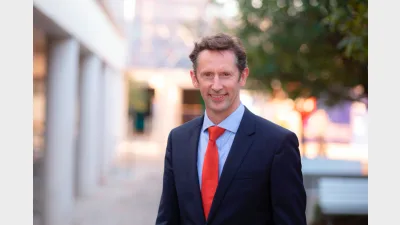Government commits to short-term shortfall recourse


The NSW Government and Commonwealth have stepped in to assure State Super SAS Trustee Corporation it will fund any shortfall in member benefits it experiences in 2013-14, pending a permanent agreement.
State Super confirmed that without additional contributions, its 2012 actuarial report indicated the employer reserves in the fund for each university will become exhausted from 2014-15 to 2021-22.
The report showed that the combined deficit of the sub-funds relating to universities was $2.4 billion and would be exhausted at the current level of contributions.
It said it was not appropriate to comment on the funding arrangement in light of the proposal for the NSW Government and Commonwealth to co-fund the deficit. However, it said in situations where funding was the responsibility of the universities, contributions should be at the same level of other APRA-regulated funds. Where it was the responsibility of the Government, it should be at least at the level of Pay As You Go funding.
State Super SAS Trustee has written to each university to obtain an agreement for the funding plan. However, in light of ongoing negotiations with the Government regarding a co-funding arrangement, it could not commit to any plan.
The NSW Government, in its Budget paper released last month, said negotiations were at an advanced stage.
"The Budget papers indicated that New South Wales is prepared to fund a share that reflects a fair estimate of the State's funding responsibilities for university superannuation and that, together with the Commonwealth funding, this will ensure that the university employer reserves are not depleted," State Super said.
The issue is not confined to NSW, with the Municipal Association of Victoria (MAV) also involved in negotiations with the Government to remove the burden on local councils of fully funding Vision Super's defined benefit shortfall.
Councils have been called on to fund the Vision Super shortfall on four occasions — but last year's shortfall of $453 million, with $396.9 million payable by councils and due on 1 July 2013, set a record and prompted many councils to lobby the Government to amend legislation.
Recommended for you
Super Review announced 21 winners at the annual Super Fund of the Year Awards, including the recipient of the prestigious Fund of the Year Award.
A research firm has given UniSuper a glowing review, praising its strong leadership and “compact team”, as well as its “creditable governance” structure.
Assistant Treasurer Stephen Jones has defended the government’s plan to modestly cut tax concessions for Australia’s wealthiest superannuation accounts, saying it is a “fairer outcome”.
APRA data shows the CFMEU accounted for 28 per cent of super fund industrial contributions, with the shadow treasurer calling for a prompt investigation into the payments.













